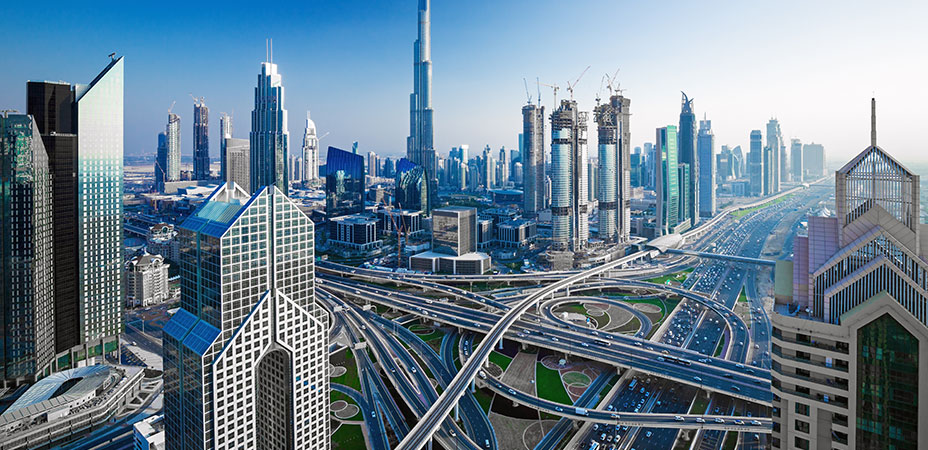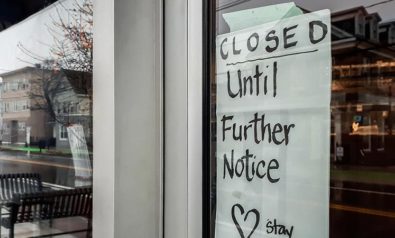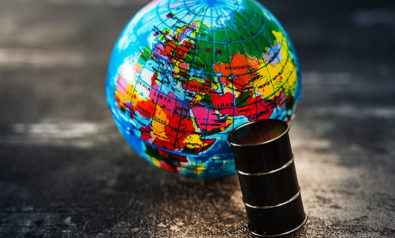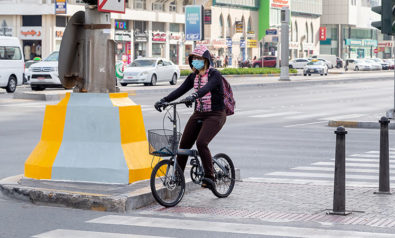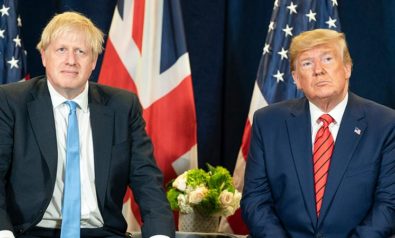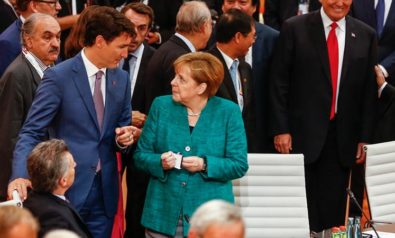Dubai — memorably called the world’s fastest city by author and analyst Jim Krane — was already traveling in the slow lane when COVID-19 arrived. The Gulf city-state is one of seven that make up the United Arab Emirates. It had survived the crash of 2009 and thrived anew on tourism, transportation, financial and property markets. However, Dubai did not have a good 2019, continuing a trend that had started in 2015 with the beginning of the decline in oil prices. Reflecting that downward trajectory, GDP growth, which in 2014 stood at 8%, had by 2018 fallen to 2%.
A key economic indicator is the property market. In the final quarter of last year, both residential and office capital values had weakened by 2.4% for the former and 1.9% for the latter. The drop reflected a narrative that had been developing for several years, the result of over-building in both markets. But with the impact of the coronavirus not yet being felt, developers had remained optimistic that a rebound was just around the corner. As the head of a leading Dubai property valuation service said at the end of January: “Lowered borrowing costs, improved product offerings and attractive developer payment plans may all now be creating the right conditions for improved buyer confidence in Dubai’s property market.”
Freefall
The optimism was not entirely ill-founded, based as it was, in part at least, on the boost that Expo 2020, scheduled to run for six months from October, would give to Dubai’s economy. The exposition, the largest ever undertaken in the Arab world, had projected a $33-billion windfall. Footfall was expected to be 25 million, with 14 million coming from abroad. However, organizers, citing the pandemic, announced on May 4 a postponement until October 2021.
By that point, Dubai’s tourism industry was already in complete freefall. Hotels and restaurants had been shuttered since mid-March, and passenger flights in and out of the city suspended. The comparison with 2019 could not be starker: Last year, the emirate entertained 16 million overseas visitors. The tourism sector generated $28 billion making Dubai the world’s third largest city in attracting direct international tourist spending, according to the World Travel & Tourism Council. All of that has disappeared in a matter of weeks and a mood of deep pessimism has settled over the economy.
A survey released by the Dubai Chamber of Commerce on May 19 showed that 75% of the businesses surveyed expected to close within the next six months. Nearly half of the restaurants and hotels surveyed said they could not survive beyond mid-June. According to the survey, those hardest hit are small and medium businesses. The poll, conducted in all major business sectors between April 16 and April 22, surveyed 1,228 CEOs. Nearly 75% of those surveyed were businesses with fewer than 20 employees.
Other sectors of the economy shared in the gloomy news. The giant port operator DP World was downgraded by Moody’s two notches to Baa3, the lowest investment grade. The ratings agency cited rising debt and the “negative interference” between the firm and the government as reasons for the downgrade. As reported by Reuters, “Dubai is borrowing $9 billion to take full control of the port operator DP World and to refinance the debt of state investment vehicle Dubai World, which was at the centre of the emirate’s 2009 debt crisis.” In short, the government is leveraging DP World’s balance sheet to repay Dubai World’s debts.
Debt Burden
Meanwhile, it has rushed in to bail out state-owned Emirates airline with an undisclosed amount of cash. In a tweet that underlines the tight links between the ruling family and the crown jewel of its business empire, Crown Prince Hamdan bin Mohammed, in announcing the bailout, wrote that “Today, we renew our commitment to support a success story that started in the mid-1980s to reach its goal of sitting on the throne of global aviation.” The airline is also seeking billions in loans on the international market, it has been reported, to supplement the government’s equity injection.
It should be noted that Dubai, together with the federal United Arab Emirates government, has taken significant steps to assist both businesses and individuals impacted by the coronavirus. Among them are a financial support package that had, by April 5, reached $70 billion; financial incentive packages for small and medium enterprises; the easing of visa renewal processes for expat workers; a reduction in utility bills; and a suspension of evictions.
However, Moody’s noted in assessing the UAE’s ability to manage the economic consequences of the pandemic that “the negative growth and fiscal implications are most acute in Dubai, while it faces the greater risk of its government-related entities requiring financial support as a result of the deterioration in economic conditions.”
With a debt burden now standing at $135 billion, or 125% of GDP, Dubai faces a nervous time while wondering how long the impact and the effects of the pandemic on the economy will last. As with the crash of 2009, the emirate has a backstop: its sister city state of Abu Dhabi. But support will come with a price, and the crown prince and de facto ruler of the United Arab Emirates, Abu Dhabi Crown Prince Mohammed bin Zayed, will surely use any request for financial help to further consolidate his already formidable power base within the UAE.
*[This article was originally published by Arab Digest.]
The views expressed in this article are the author’s own and do not necessarily reflect Fair Observer’s editorial policy.
Support Fair Observer
We rely on your support for our independence, diversity and quality.
For more than 10 years, Fair Observer has been free, fair and independent. No billionaire owns us, no advertisers control us. We are a reader-supported nonprofit. Unlike many other publications, we keep our content free for readers regardless of where they live or whether they can afford to pay. We have no paywalls and no ads.
In the post-truth era of fake news, echo chambers and filter bubbles, we publish a plurality of perspectives from around the world. Anyone can publish with us, but everyone goes through a rigorous editorial process. So, you get fact-checked, well-reasoned content instead of noise.
We publish 2,500+ voices from 90+ countries. We also conduct education and training programs
on subjects ranging from digital media and journalism to writing and critical thinking. This
doesn’t come cheap. Servers, editors, trainers and web developers cost
money.
Please consider supporting us on a regular basis as a recurring donor or a
sustaining member.
Will you support FO’s journalism?
We rely on your support for our independence, diversity and quality.


